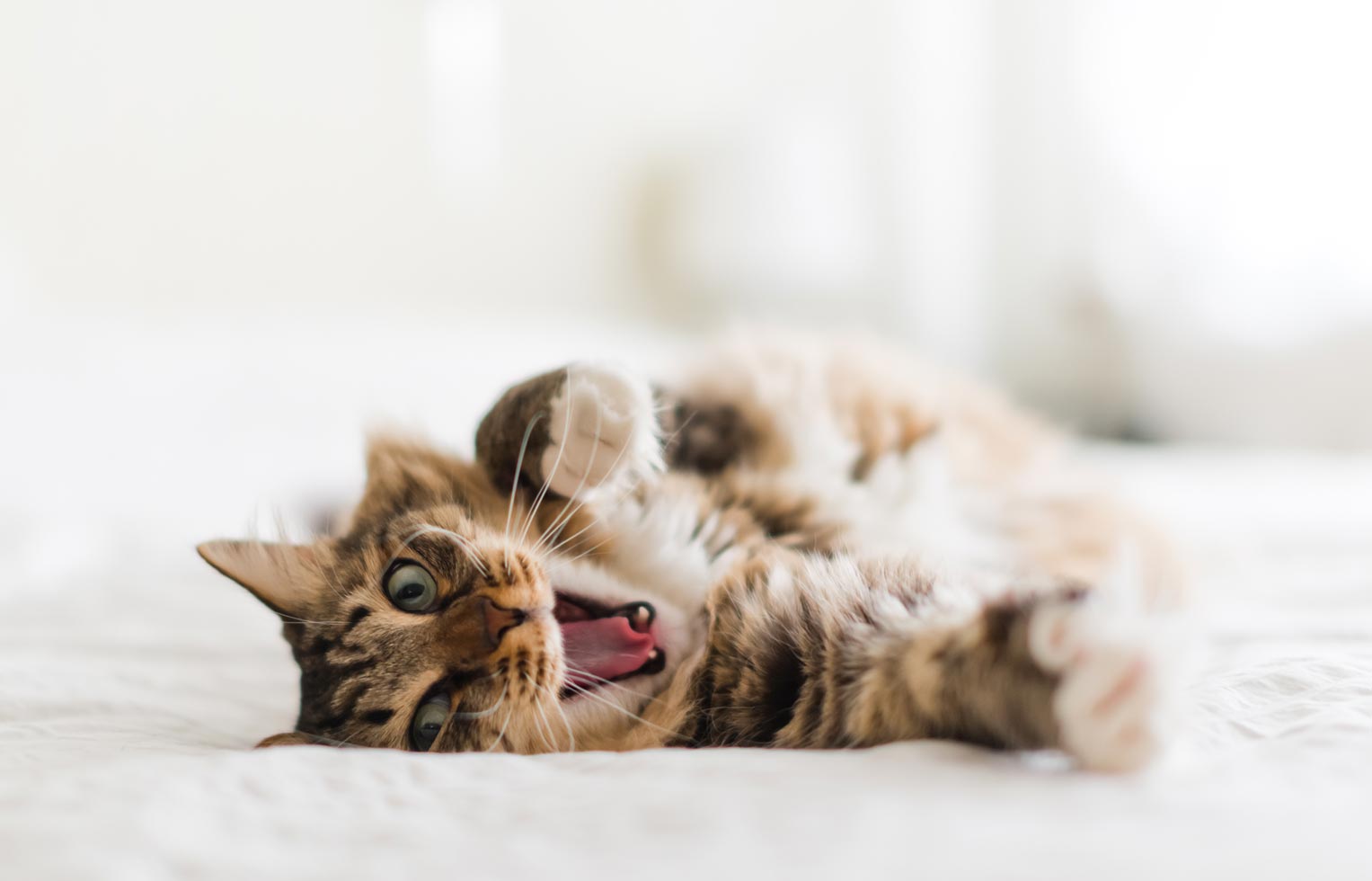How to Control Cat Biting

Cat biting is a real problem because when humans are bitten by cats, it's extremely common for the wounds to become infected. That's because there are an awful lot of active bacteria in a cat's mouth.
Cats bite for a few different reasons which range from normal play behavior to aggressiveness. Here are a few things to know about cat biting and how you can curb or stop the behavior.
Check for a Medical Problem
If your cat is an adult and has never bitten you but suddenly begins snapping, growling, or hissing, there might be a medical problem at fault. Pain can cause a cat to lash out at those nearby. If your cat suddenly begins biting when he never did before, get to the veterinarian for a thorough check-up.
Kittens Bite Naturally and Must Be Taught
Kittens bite as part of their play behaviors. Ideally, if a kitten is with her mother and siblings long enough, they will teach her not to bite hard. However, no bite is acceptable for a cat to give a human, so your kitten must be taught that. The way to do so is to show your kitten what to do instead. Always have cat toys available to play with your cat.
Never use your hands to play directly with the kitty. If she does put her teeth on your skin, a loud noise should startle her into letting go. Then immediately give her something appropriate to chew on and praise her for doing so.
If your skin is broken by a cat's tooth, seek medical attention right away. Most cat bites cause infections and can be dangerous if untreated.
Cats Need Predatory Play
Cats are predators by nature, and they must have an outlet for chasing, pouncing, and, yes, biting. Be sure you're giving your cat enough interactive playtime. Use wand toys and rodent toys to simulate birds and rodents for your cat. You control the toy, making it act like prey by running away from your cat, stopping, and hiding. Allow your cat to "catch" the prey and bite it from time to time, and then give a nice tasty treat to finalize the simulated hunt. This will help satisfy your cat's hunting instincts and decrease the chances she'll feel the need to stalk, hunt, and bite you.
Declawing increases biting. When a cat's primary defense is removed, she can become uneasy, anxious, and more likely to bite offensively.
Fight Redirected Aggression
Some cats seem to go crazy suddenly, acting upset and attacking humans and other pets nearby. Sometimes this is due to redirected aggression. Your kitty might be seeing or sensing another cat outside that she can't get to in order to chase away. Instead, she looks for the closest warm body inside to take her frustration out upon. If you suspect this is going on, throw a toy away from yourself to redirect your kitty. It can also help to put a scratching post near the window so your kitty can scratch like crazy to relieve stress. You can also do what you can to get the outside kitty to leave the area, including trying to find his owner.
If your cat is attacking you aggressively, don't wait. Ask your veterinarian if medication might help and for a referral to a behavioral specialist. Each individual circumstance is different, and your cat should be evaluated, diagnosed, and treated as an individual.


